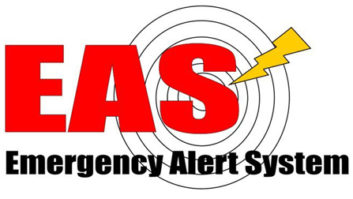Assuring some good weekend reading in the broadcast and alerting communities, the FCC has released its new 75-page notice of proposed rulemaking aimed at improving the Emergency Alert System and Wireless Emergency Alerts.
Among other things, it is considering adopting new EAS designations to more accurately reflect current roles and responsibilities of key EAS participants including radio stations.
For your reading pleasure: Radio World has posted the document here (PDF).
Paragraph 17 of the order states that some familiar nomenclature would be tweaked. The FCC would continue to designate the primary entry point for a Presidential Alert as a PEP, but for each State EAS Plan it proposes that the entity tasked with primary responsibility for delivering the Presidential Alert to a state’s EAS Participants be designated as the National Primary.
And the entity tasked with initiating delivery of a state EAS alert would be designated as a State Primary. An SP could be a broadcaster, state emergency management office or other authorized entity capable of initiating a state-based EAS alert. Further, where geography or other reasons require another layer of monitoring and retransmission between the LP and PN levels, the FCC wants to designate those stations in State EAS Plans as “Relay Stations.”
The FCC also wants to streamline and update the State EAS Plan filing process by requiring SECCs to file plans electronically, and to adopt a standard online template for State EAS Plan content.
As we reported Thursday, the FCC also proposes to require participants to certify performance of security best practices, given concerns in recent years over EAS hoaxes and hack vulnerabilities; it spends an extensive discussion on the topic of EAS security. The discussion starts with Paragraph 97. “We propose that EAS Participants must submit an annual reliability certification form that attests to performance of required security measures with a baseline security posture in four core areas.” Those are patch management, account management, segmentation and CAP Digital Signature Validation.
The proposal also recommends allowing federal, state and local governments to issue public service announcements using the EAS sound attention signal, provided that the alert is presented in a non-misleading manner. And that is just a sampling.








